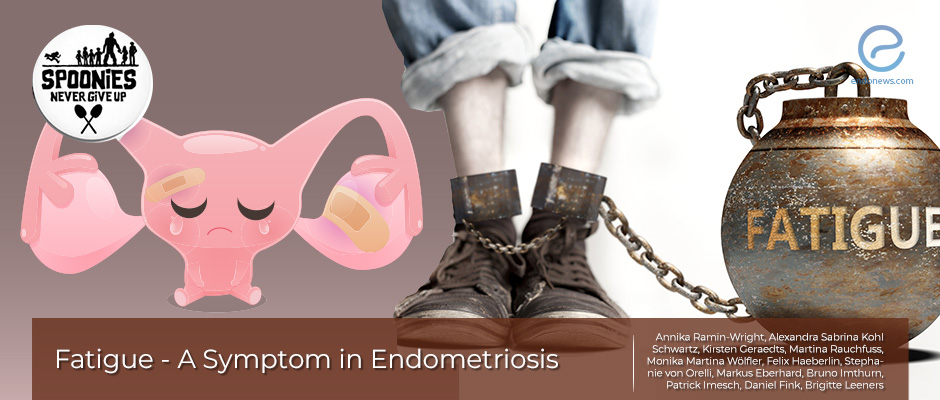An overlooked symptom of endometriosis: Fatigue
Nov 30, 2018
Fatigue is experienced by a majority of women with endometriosis.
Key Points
Highlights:
- Fatigue was found to be associated with endometriosis, pain, insomnia, depression, and occupational stress.
Importance:
- Patients with fatigue need a reduction of insomnia, pain, depression, and occupational stress in addition to the standard treatment of endometriosis.
What's done here:
- Researchers analyzed the prevalence of fatigue in 1120 women, 560 of them had endometriosis.
- The endometriosis patients were matched to 560 control women regarding age ±3 years and ethnic background.
- The effects of endometriosis, pain, BMI, insomnia, depression, motherhood, and stress on fatigue were also examined.
Key Results:
- The prevalence of frequent fatigue was more than doubled in endometriosis patients compared to unaffected control women.
- There was a strong association between frequent fatigue and frequent insomnia which is experienced more often by endometriosis patients.
- Women experiencing pain were more affected by fatigue and that pain was highly associated with endometriosis.
- Pain and depression tended to be seen together. Depression was found to be associated with frequent fatigue.
- Fatigue was independent of the disease stage.
Limitations:
- Since the data was retrieved from a self-administered questionnaire and answers on fatigue were based on experiences in the past 6 months, answers are subjective and at risk for recall biases.
- The study design does not evaluate causal effects.
- Differences in fatigue might have been underestimated, as some women in the control group might have undiagnosed endometriosis.
- The exclusion of women with pelvic pain in the control group was excluded might have resulted in overestimation.
Lay Summary
A majority of endometriosis patients experience fatigue. This is according to a multicenter study conducted by a group of researchers from Switzerland, Germany, and Austria.
Fatigue, and feeling spoonie, may be a symptom of endometriosis affecting the daily activities and quality of life of women with endometriosis. But, there are not may large scale studies analyzing fatigue as a symptom of endometriosis.
To determine the prevalence of this underestimated symptom of endometriosis, Ramin-Wright et al. evaluated 560 women with endometriosis and 560 women without endometriosis recruited from different university hospitals, district hospitals and associated private practices between 2010-2016. Two groups were matched to each other based on the criteria including age ±3 years and ethnic background.
Women were given a questionnaire including questions regarding age, nationality and socio-economic background, the gynecological history, pre-existing health conditions, chronic pain, family history, pregnancy, partnership, sex life, lifestyle, and psychological disorders.
Researchers observed that the prevalence of frequent fatigue was more than doubled in endometriosis patients compared to unaffected control women. They also found that fatigue was associated with endometriosis, pain, insomnia, depression, and occupational stress. Women experiencing pain were shown to be more affected by fatigue and that pain was highly associated with endometriosis. Pain and mood conditions such as depression tended to occur together as consistent with the literature findings. Besides, depression was found to be associated with frequent fatigue.
The current study also showed that frequent fatigue was strongly associated with frequent insomnia which is experienced more often by endometriosis patients.
In contrast to the previous literature, the team found that fatigue was independent of the disease stage.
Authors recommend that the current treatment and management of endometriosis focusing more on classic symptoms such as pain and infertility should also include endometriosis-related fatigue.
This study is published in Human Reproduction.
Research Source: https://pubmed.ncbi.nlm.nih.gov/29947766/?from_single_result=29947766&expanded_search_query=29947766
endometriosis fatigue insomnia depression pain spoonie eccedentesiast mood and endometriosis depression occupational stress what does endometriosis feel like

